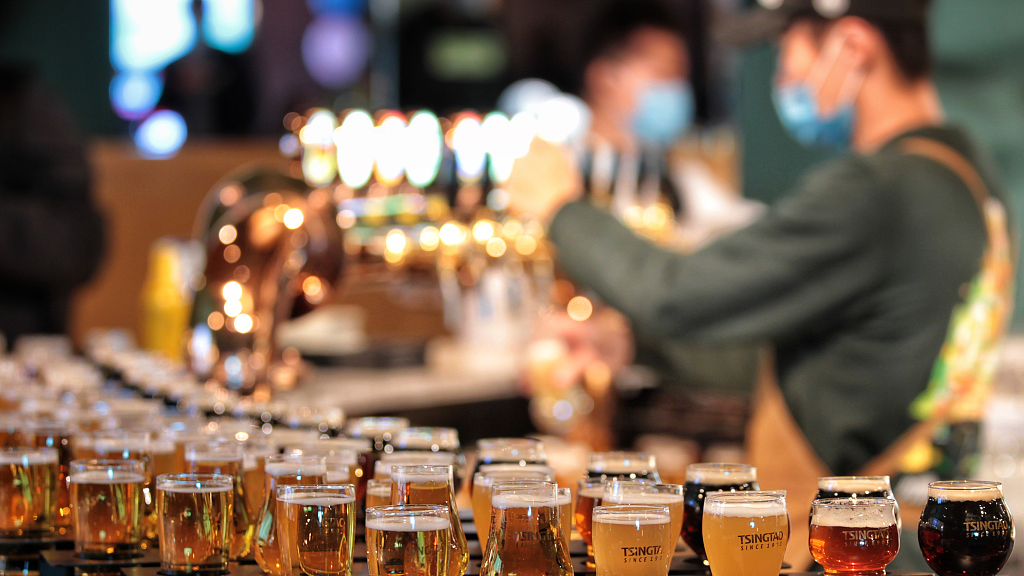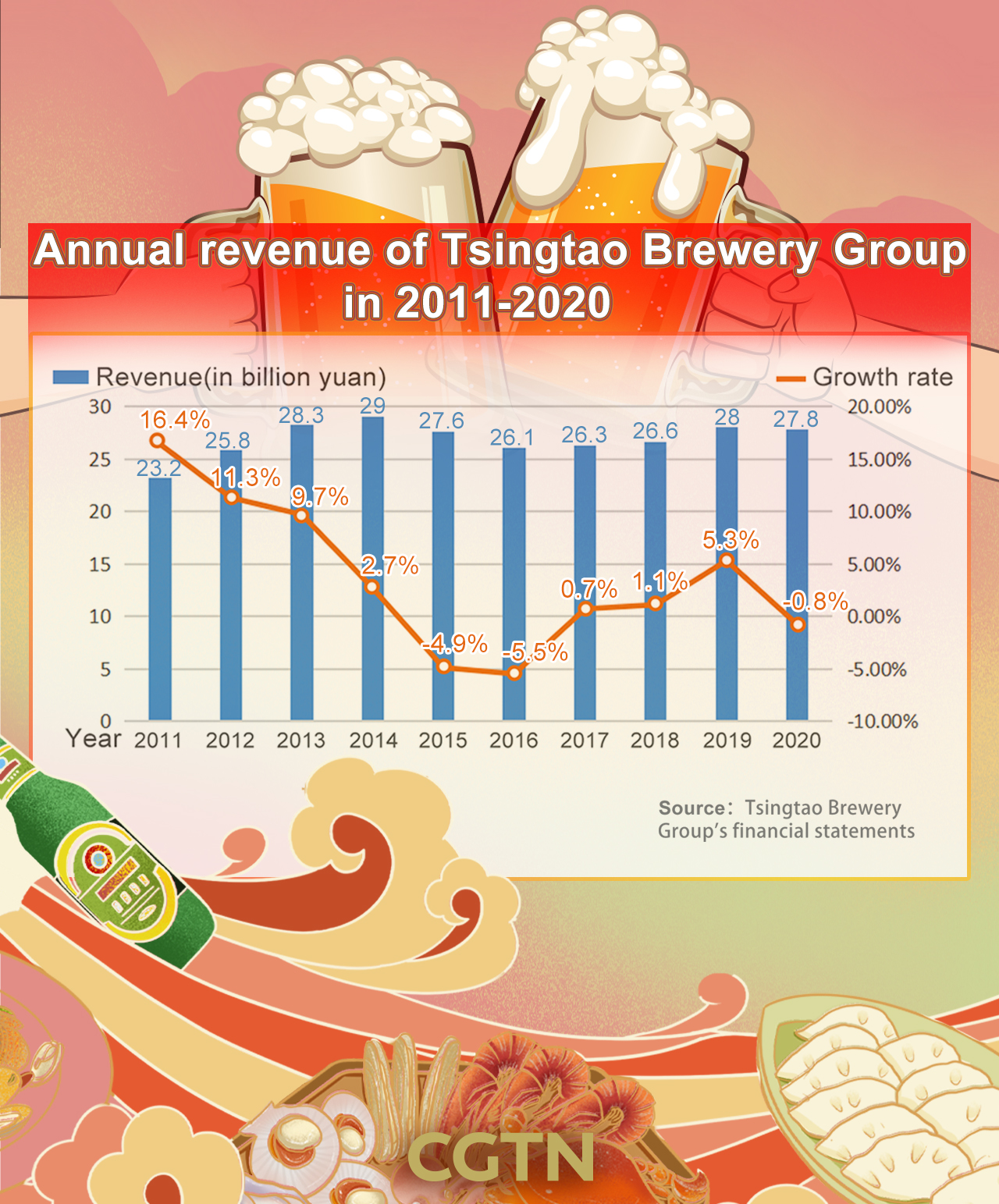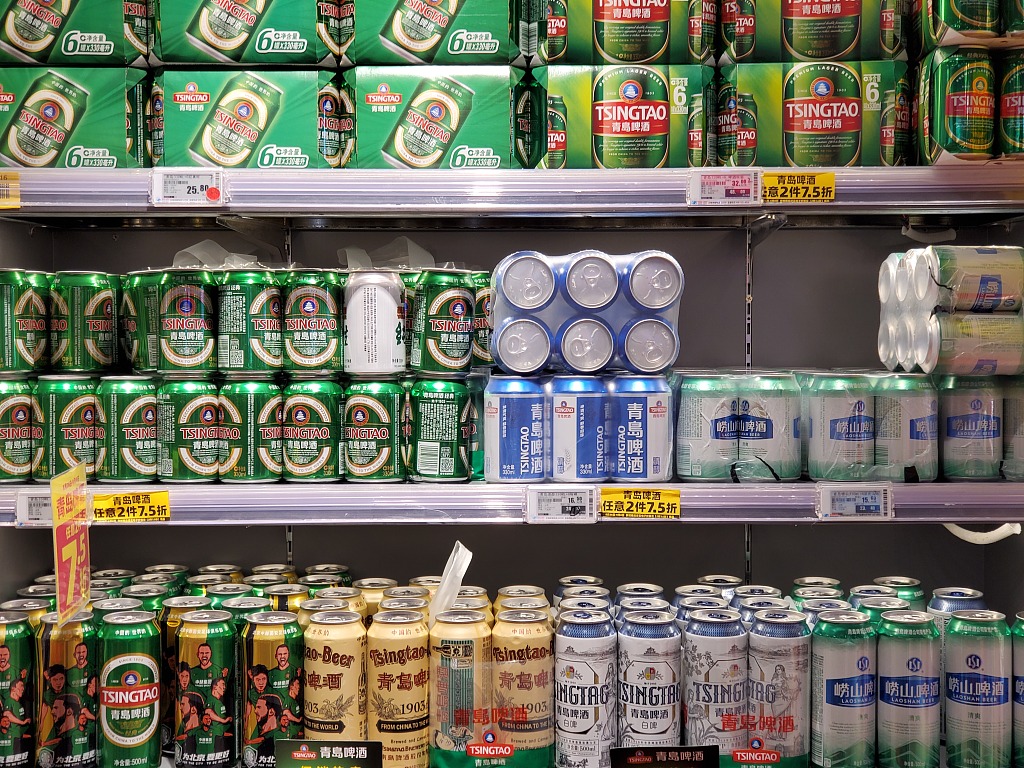
A Tsingtao 1903 bar opens in Jinan, east China's Shandong Province, November 6, 2020. /CFP
A Tsingtao 1903 bar opens in Jinan, east China's Shandong Province, November 6, 2020. /CFP
Century-old Tsingtao Beer has reformed itself to hit the new national tide in efforts to revive the brand and reverse the slowdown in sales since the Chinese beer market began to shrink a decade ago.
Founded in 1903, Tsingtao Beer is named after the coastal city of Qingdao in east China's Shandong Province where it is produced. It has become one of the country's most famous exports, to over 100 countries and regions.
Its company Tsingtao Brewery has become the first dual-listed company in China that went public in both Hong Kong and Shanghai. Last year, the company's share price reached a new high, and its total profits have exceeded three billion yuan (about $470 million) for the first time.
However, the whole Chinese beer market began to shrink in 2013. The market has registered a negative growth for the first time in 2014, with annual output of about 49 million kiloliters, according to the National Bureau of Statistics.
The luck has not always been with the brand. Tsingtao Brewery was facing unprecedented pressure due to the slowdown in the domestic beer industry and fierce market competition caused by overcapacity and low market demand.
Its annual revenue declined by 4.9 percent year on year in 2015, and the revenue in 2016 slumped by 5.5 percent compared with a year ago. Affected by the COVID-19 pandemic, the company's revenue in 2020 dropped by 0.8 percent year on year.

The company had to carry out reforms. It kept beer as its main business and planned three major sectors – happiness, health and fashion. The three major sectors have changed the company's development way on a single track and made it competitive on multiple tracks.
The happiness sector is mainly the beer business. The health sector is composed of soda water, mineral water, health drinks and biotech products derived from beer yeast, while the fashion sector is composed of fashionable bars and craft beer gardens.
Meanwhile, Tsingtao Brewery was aware of the advantages that comes with having beer with an obvious cultural importance that reflects the history of the Chinese beer industry. The company began to create products with its advantages in mind and became a brand to hit new national tide welcomed by young people.
In the beer business, the company has successfully developed a beer flavor map and launched a variety of beers that are popular with young consumers and satisfy their desire for novelty, such as white and dark beers; pure raw, puree, Pearson-types and IPAs.
It has also focused on the sports sector and targeted both young- and middle-aged men. It won the sponsorship of the 2008 Beijing Olympics and is now, the official sponsor of the Beijing 2022 Winter Olympics.
The company has used old posters collected by the Tsingtao Brewery Museum in the national tide marketing. For example, an old poster showing a girl in a traditional Chinese cheongsam with the word "good" are printed on Tsingtao Beer Class 1903 retro cans.
The company has also launched special edition cans to sell its beer with movies like Warcraft, Midnight Diner and Wolf Warrior 2. And a Warcraft version of Class 1903 has helped the company sell over a million cans within half a month.

Cans of Tsingtao Beer are placed on shelves of a supermarket in Beijing, China, August 30, 2020. /CFP
Cans of Tsingtao Beer are placed on shelves of a supermarket in Beijing, China, August 30, 2020. /CFP
In the digital era, manufacturers can directly interface with consumers on social media. "We are learning how to enable consumers to have a strong interaction with our brand. In the future, more new products will go to social media," said Zhu Jiayi, brand management chief of Tsingtao Brewery.
Tsingtao Brewery introduced Prince Seaweed Soda Water in February 2020, when people did stay-at-home seaweed dancing to get rid of anxiety from the pandemic on Douyin, the Chinese version of short video-sharing app TikTok.
The brand has also taken advantage of live streams, China's Twitter-like Weibo platform, and other social media platforms to interact with young consumers. Offline, it has conducted football, basketball and marathon events, as well as music festivals and other activities to promote its brand.
In terms of consumption scenarios, Tsingtao Brewery has successively held beer festivals in over 50 cities across the country, and opened more than 200 Tsingtao 1903 bars in over 60 cities including Beijing, Shanghai and Shenzhen.

